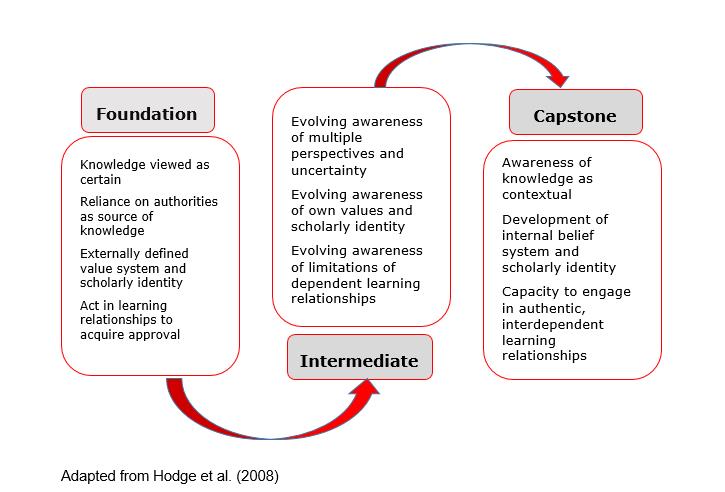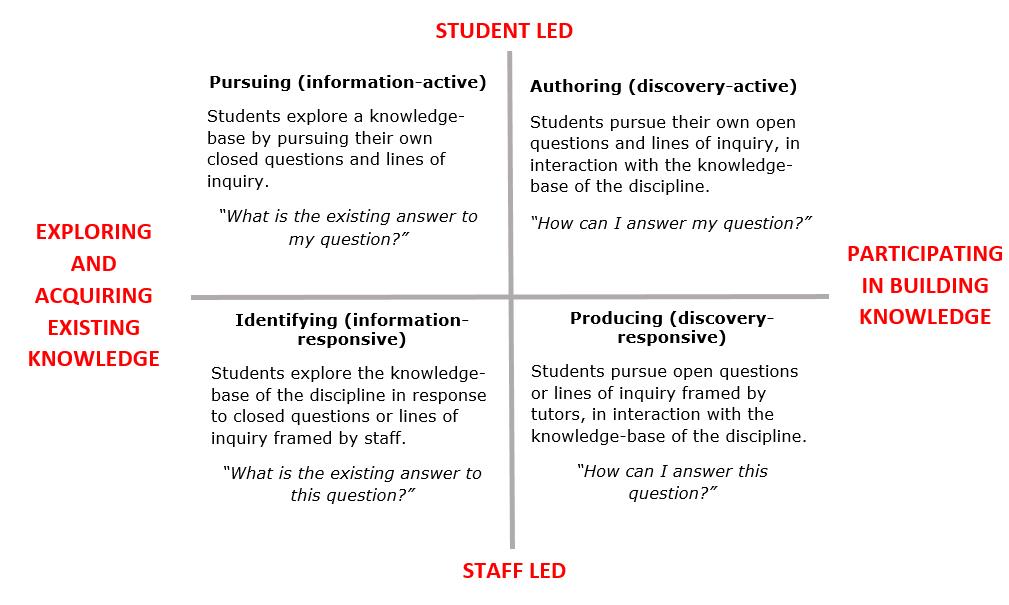To dig deeper, you can use models of the ‘teaching research nexus’ to map your course/programme content and identify areas that may benefit from development.
Each of these models assumes that whilst research-led teaching—structured around the content of the research interests of teaching staff—has its place in curriculum design, learners develop a more sophisticated understanding of the discipline when they engage in active and experiential learning.
In Hodge’s ‘student as scholar’ model, the student moves from a simpler view of knowledge, and a reliance on authority, towards handling more complexity and developing their own scholarly identity.
 The “student as scholar” model (adapted from Hodge et al., 2009)
Audio description
The “student as scholar” model (adapted from Hodge et al., 2009)
Audio description |
Printable PDF
Levy (2009) proposed a model in which the student can provide existing answers to pre-set questions, but ideally works towards generating both their own answers and their own lines of enquiry. The vertical axis in this diagram contrasts staff-led and student-led learning, whilst the horizontal axis distinguishes information-led (existing knowledge) from discovery-led (new knowledge) inquiry.
 Levy’s (2009) version of the teaching research nexus
Levy’s (2009) version of the teaching research nexus
Audio description | Printable PDF
It is worth highlighting that both Levy, and Healey and Jenkins (whose work underpins Levy’s), acknowledge that activities relating to all four quadrants of their models all occur in the curriculum. However, they believe that the top two quadrants more fully utilise the links between teaching and research and have the greatest potential to enhance students’ learning.